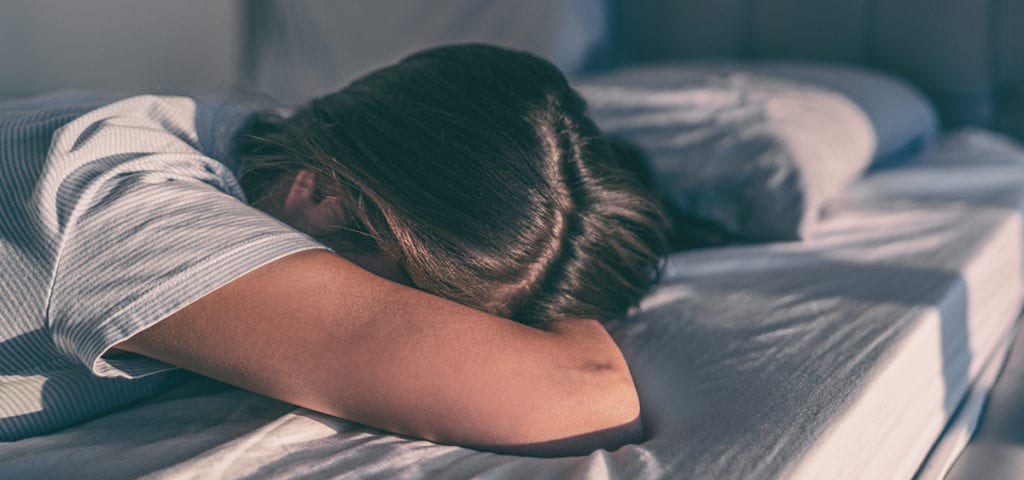Australian researchers have uncovered evidence that a cannabis-based treatment could be effective against chronic insomnia.
Study: Cannabis Shows Promise Against Chronic Insomnia

Depressed sleep deprived woman sick in bed late at night can't fall asleep on mattress. Winter seasonal affective disorder mental health illness woman crying alone at home banner panorama.
Full story continued below.
Advertisement
Researchers in Australia have uncovered evidence showing that cannabis could be an effective treatment against chronic insomnia, New Atlas reports. While there are heaps of anecdotal evidence suggesting that cannabis can improve one’s ability to fall and stay asleep, this is the first clinical study confirming the theory.
The double-blind, placebo-controlled study began in 2018 and featured 23 patients suffering from chronic insomnia. The study, which was conducted independently but was funded by medical cannabis company Zelira Therapeutics, measured the participants’ sleep quality with a combination of subjective responses, electronic sleep trackers, and the Insomnia Severity Index (ISI) — a clinical questionnaire that helps to measure insomnia symptoms.
Lead researcher Peter Eastwood said study participants were given either a placebo product or a proprietary cannabinoid formulation called ZTL-101, which contains both THC and CBD in an undisclosed ratio. Researchers noted a 26% reduction in ISI scores among the non-placebo group; the reduction was even higher among participants who doubled their dose of cannabinoids.
“This study represents the most rigorous clinical trial ever undertaken to assess the therapeutic potential of medicinal cannabis to treat the symptoms of chronic insomnia. The fact that ZTL-101 treatment achieved statistically significant, dose responsive improvements across a broad range of key insomnia indices is impressive, particularly given the relatively short two-week dosing window.” — Eastwood, via New Atlas
“Positive patient experiences with minimal side-effects are critical to the success of any insomnia drug and highlights the potential for ZTL-101 to address a key area of unmet need,” Eastwood told New Atlas. “It is likely that further improvements in efficacy could be achieved by dosing over a longer period and potentially at higher doses.”
Get daily news insights in your inbox. Subscribe
End